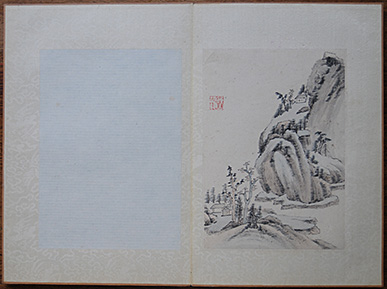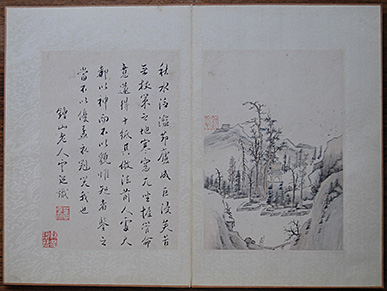Grace and resilience
Life amid ruins, recollections
The world of Han intellectuals was brutally overturned by the Manchu conquest in 1644. Literati who survived the onslaught faced the choice of collaboration or reclusion. In the decades that followed, paintings record sensitive, conceptual reactions to this social and personal tragedy.
In XIAO Yuncong's 蕭雲從 (1596-1673) small album lightly painted mountains suggest a Taoist (Han Chinese) setting for the painter’s reflections. Xiao – now in his seventies – also offers his nom de plume as the 'old man of Zhong Mountain' alluding to the abode of a hermit.
The brushwork and colouring are soft and flickering, the figures slight and without defined expression. A dream-like space, as much recollection as based on any recent reality. Themes of rambling in a fine season, past villages and along quiet rivers. Here and there are resting places, mountain retreats of scholars and monks, and sanctuaries of long-lived cranes. The final page is paired to an inscription harking back to Yuan recluses and the apparent uselessness of art.
Consciously distanced from official life, we see a heart preserved, word-less self-discipline and the delineation of freedom of spirit - the hard nub of cultural resistance.
(This album was the basis of Ten Days in the Mountains (2003), a digital facsimile of which can be viewed from the homepage of this website.)
 |  |
| XIAO Yuncong 蕭雲從 (1596-1673) Landscapes Album of 11 leaves, ink and colour on paper 21.5 x 14.8 cm Private collection |
- Page 1
- 2